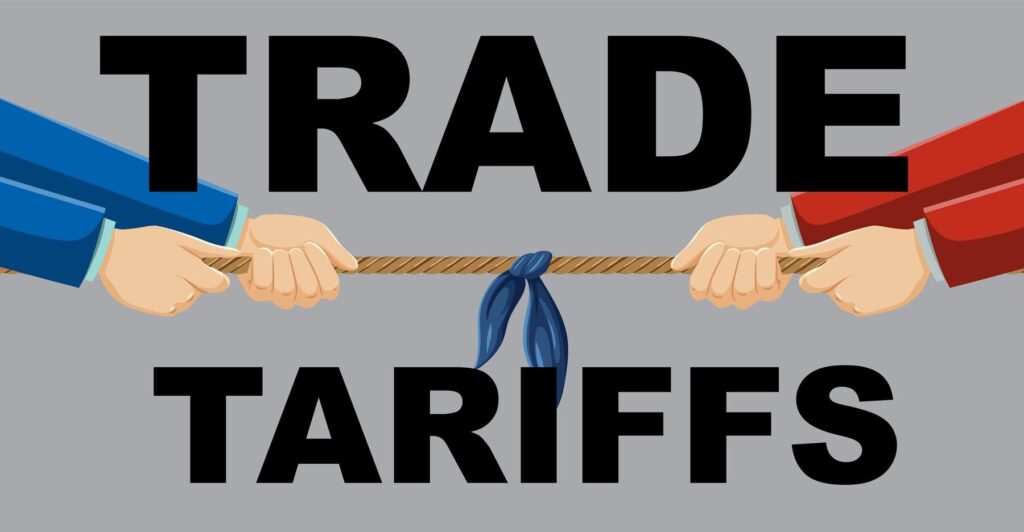
LONDON, April 3 (Bernama-Xinhua) — The British government and business groups on Wednesday voiced broad concern after US President Donald Trump announced a 10 per cent tariff on all British imports, warning that the move could disrupt bilateral trade and put pressure on struggling sectors, including manufacturing and small businesses, reported Xinhua.
After Trump’s announcement, Business and Trade Secretary Jonathan Reynolds said the government would continue negotiations with the United States to seek a resolution.
Britain received the lowest tariff rate of 10 per cent, lower than the 20 per cent imposed on the EU and higher rates on several Asian countries. However, business groups warned that the tariffs, even at 10 per cent, could weigh heavily on UK industries.
“There are no winners in a trade war,” said Rain Newton-Smith, Chief Executive of the Confederation of British Industry, adding that Trump’s announcement is “deeply troubling for businesses and will have significant ramifications around the world.”
The Federation of Small Businesses (FSB) said small exporters would be hit hard, as 59 per cent of them trade with the US. “Tariffs will cause untold damage to small businesses trying to trade their way into profit,” said Tina McKenzie, the FSB’s policy chair.
Scotland’s whisky producers also expressed disappointment, as the US is the largest single export market for Scotch whisky. A spokesperson for the Scotch Whisky Association said the industry supported ongoing efforts by the British government to negotiate a deal, warning that higher tariffs could hurt sales and reduce competitiveness.
Australian Prime Minister Anthony Albanese condemned the new US tariffs on imports from the nation as “unwarranted” and “not the act of a friend.”
Albanese on Thursday morning said that Trump’s announcement of a 10-per cent tariff on all imports from Australia did not come as a “surprise” to the government but said they have “no basis in logic”.
“The administration’s tariffs have no basis in logic and they go against the basis of our two nations’ partnership,” Albanese told reporters in Melbourne on Wednesday.
He confirmed that Australia would not impose reciprocal tariffs on the US, instead threatening to use “dispute resolution mechanisms” contained in the free trade agreement between the nations.
Likewise, China firmly opposed the US “reciprocal tariffs” and would resolutely adopt countermeasures to safeguard its rights and interests, according to a spokesperson for the Ministry of Commerce on Thursday.
History shows that increasing tariffs cannot solve the United States’ own problems. It harms US interests and endangers global economic development as well as industrial and supply chain stability, the spokesperson said.
“There is no winner in a trade war, and protectionism leads nowhere,” the spokesperson said.
China urges the US to immediately cancel its unilateral tariff measures and properly resolve differences with its trading partners through equal dialogue, the spokesperson said.
Similarly, the Brazilian government on Wednesday criticised the US for imposing an additional 10 per cent tariff on all Brazilian exports, saying that the move violates Washington’s commitments to the World Trade Organisation (WTO).
The US trade surplus with Brazil in 2024 amounted to approximately US$7 billion in goods alone, and the surplus reached US$28.6 billion last year when goods and services are combined, Brazil’s Foreign Ministry said in a statement, noting that “this represents the third-largest trade surplus for the US worldwide”.
Given that the US has recorded recurring and significant trade surpluses of US$410 billion in goods and services with Brazil over the past 15 years, the unilateral imposition of an additional 10 per cent tariff on Brazil under the justification of restoring balance and ensuring “trade reciprocity” does not reflect reality, the ministry said.
“In defending Brazilian workers and businesses, and in line with its strong commitment to the multilateral trading system, the Brazilian government will consult with domestic industries to protect their interests and seek dialogue with the US government,” it said.
While the government remains open to advancing the dialogue it has established in recent weeks with the US, Brazil “is evaluating all possible courses of action to ensure reciprocity in bilateral trade, including resorting to the WTO, in defence of Brazil’s legitimate national interests,” it added.
Meanwhile, Kyodo news agency reported that Japan’s top government spokesman Yoshimasa Hayashi on Thursday expressed “serious concern” about the US move to impose reciprocal tariffs, casting doubt on whether it is in line with WTO rules and a bilateral trade agreement.
The chief Cabinet secretary also said Tokyo has strongly urged Washington to retract the decision by the US administration of President Donald Trump to slap a 24 per cent levy on Japanese products as part of the reciprocal tariffs.
Joining the rest of the world in voicing their concerns over the US tarrifs, the chair of the European Parliament’s Trade Committee, Bernd Lange, warned that new tariffs imposed by US on Wednesday could have severe negative consequences, especially for the average citizen, according to German news agency (dpa).
Lange said that Trump may call it a “liberation day”, but from the perspective of the average citizen, it is more likely to be an “inflation day”. The impact of a trade war would largely fall on US consumers, with increased costs and inefficiencies in production and processes.
The German Social Democrat called Trump’s move unjustified and disproportionate, saying it could lead to further escalation and an economic downturn for both the US and the global economy.
He also expressed concern about the uncertainty created in the investment climate, citing recent stock market volatility.
According to Lange, a united response from the countries concerned is needed to send a clear message to the US. The European Union will consider the best tools to address the situation and to hopefully encourage the US to engage in negotiations, he added.
If the US is not willing to negotiate, the EU will not back down and will defend its sovereignty, he said.
— BERNAMA-AGENCIES